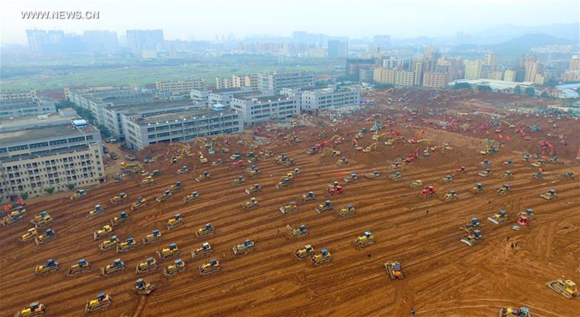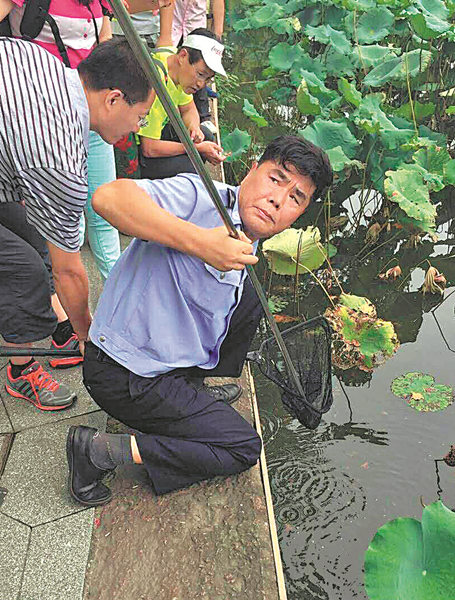 |
|
Cyclists in Tianjin wear masks on Friday, as dust hits the city. [Photo/Xinhua]
|
A severe sandstorm sweeping the northern region turned the sky yellow, and caused at least one death in the affected regions.
The storm is forecast to persist, and marched south and east on Friday to blanket cities including Shanghai and Jiangsu province.
The affected southern regions are expected to see the storm disappear on Sunday, the National Meteorological Center said.
In Beijing, a 50-meter section of wall was blown down, killing one person and burying eight vehicles on Friday morning.
In addition, a pedestrian was severely injured by a flying brick in Haidian district on Friday morning, Beijing News reported. The wind blew down trees, causing severe traffic jams in the morning.
Shanghai has issued a warning that air pollution is forecast to climb to the severe level on Friday night, and that it will persist until Sunday, the municipal environment and weather authorities said.
They suggested people take precautions like closing windows, staying indoors and wearing protective masks.
In addition, the provinces of Henan, Jiangsu and Hubei have been affected by dust and sand on Friday, and will see it linger until Saturday, the national weather authority said.
Wuhan, Hubei province, suspended work on construction sites and demolitions, and the frequency of watering roads was increased to reduce dust generation, the city government said.
The ongoing dust and sand storm, the strongest bout this year, has swept over more than 10 provinces and big cities in northwestern and northern regions since Wednesday, including Beijing, the center said.
In Mongolia and the Inner Mongolia autonomous region, the dust storm has reached alarmingly high levels and lowered the visibility to 300 meters in some areas, according Zhang Bihui, a senior meteorologist at the weather authority.
On Thursday, the concentration of PM10-the main pollutants in the dusty weather-soared to over 2,000 micrograms per cubic meter, the Ministry of Environmental Protection said, adding that at least seven cities including Beijing saw their air quality indexes reaching the maximum of 500.
In Hailar district of Hulunbuir, Inner Mongolia, the strong sandstorm forced the closure of a section of major expressway and closed schools on Thursday and Friday.


